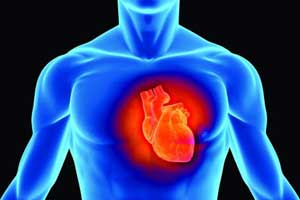- Home
- Editorial
- News
- Practice Guidelines
- Anesthesiology Guidelines
- Cancer Guidelines
- Cardiac Sciences Guidelines
- Critical Care Guidelines
- Dentistry Guidelines
- Dermatology Guidelines
- Diabetes and Endo Guidelines
- Diagnostics Guidelines
- ENT Guidelines
- Featured Practice Guidelines
- Gastroenterology Guidelines
- Geriatrics Guidelines
- Medicine Guidelines
- Nephrology Guidelines
- Neurosciences Guidelines
- Obs and Gynae Guidelines
- Ophthalmology Guidelines
- Orthopaedics Guidelines
- Paediatrics Guidelines
- Psychiatry Guidelines
- Pulmonology Guidelines
- Radiology Guidelines
- Surgery Guidelines
- Urology Guidelines
Norepinephrine- a preferred vasopressor option for cardiogenic shock after MI : JACC

According to a study published in the Journal of the American College of Cardiology (JACC) Norepinephrine may be preferred vasopressor option over epinephrine for cardiogenic shock after AMI.
The use of epinephrine in patients with cardiogenic shock (CS) after acute myocardial infarction (AMI) is associated with similar effects on arterial pressure and cardiac index and a higher incidence of refractory shock, compared to norepinephrine, according to the new study. But keeping in view of side effects as of now Norepinephrine may be preferred option over epinephrine for cardiogenic shock after AMI.
The study was conducted by Bruno Levy, Réanimation Médicale Brabois at Centre Hospitalier Universitaire de Nancy, France, and colleagues, to compare the efficacy and safety of epinephrine and norepinephrine in patients with CS after AMI.
Vasopressor agents could have certain specific effects in patients with cardiogenic shock after MI, which may influence the outcome. Although norepinephrine and epinephrine are currently the most commonly used agents, no randomized trial has compared their effects, and intervention data are lacking.
Read Also: Epinephrine linked to threefold mortality risk in Cardiogenic shock
The investigators conducted a prospective, double-blind, multicenter, randomized study. The primary efficacy outcome was cardiac index evolution, and the primary safety outcome was the occurrence of refractory CS. Refractory CS was defined as CS with sustained hypotension, end-organ hypoperfusion and hyperlactatemia, and high inotrope and vasopressor doses. Associations between treatment group and adverse events were assessed by using logistic regression model. Odds ratios are presented with their 95% confidence intervals using the norepinephrine group as reference.
Fifty-seven patients were randomized into 2 study arms, epinephrine and norepinephrine.
Key Findings:
- For the primary efficacy endpoint, cardiac index evolution was similar between the 2 groups (p = 0.43) from baseline (H0) to H72.
- For the main safety endpoint, the observed higher incidence of refractory shock in the epinephrine group (10 of 27 [37%] vs. norepinephrine 2 of 30 [7%]; p = 0.008) led to early termination of the study.
- Heart rate increased significantly with epinephrine from H2 to H24 while remaining unchanged with norepinephrine.
- Several metabolic changes were unfavorable to epinephrine compared with norepinephrine, including an increase in cardiac double product and lactic acidosis from H2 to H24.
"In patients with CS secondary to acute myocardial infarction, the use of epinephrine compared with norepinephrine was associated with similar effects on arterial pressure and cardiac index and a higher incidence of refractory shock," wrote the authors. "Furthermore, compared with norepinephrine, epinephrine administration also was associated with an increase in heart rate, prolonged acidosis, and lactatemia. At this time, norepinephrine appears to be the preferred vasopressor in patients with CS secondary to AMI."
"Additional studies are indicated to compare the myocardial energetic effects of various catecholamines and their impact on clinical outcomes in patients with CS in clinical settings other than AMI," concluded the authors.
For further reference log on to 10.1016/j.jacc.2018.04.051

Disclaimer: This site is primarily intended for healthcare professionals. Any content/information on this website does not replace the advice of medical and/or health professionals and should not be construed as medical/diagnostic advice/endorsement or prescription. Use of this site is subject to our terms of use, privacy policy, advertisement policy. © 2020 Minerva Medical Treatment Pvt Ltd